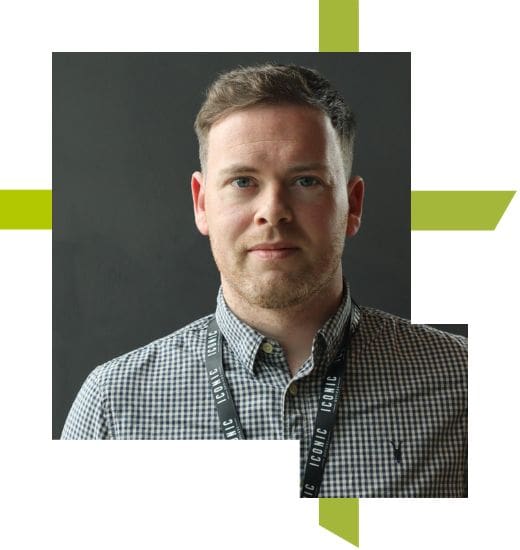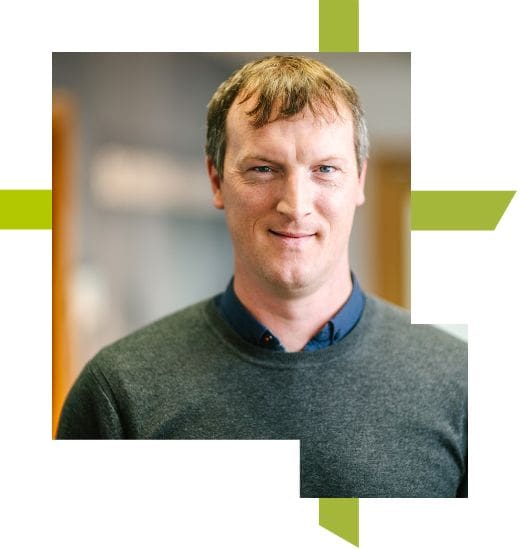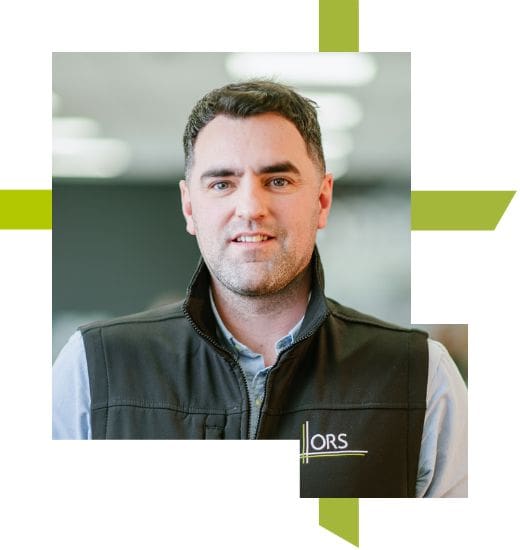Our ENvironmental TEAM
Our people are proficient in environmental science. As highly-qualified environmental experts, we act as an ambassador for our private and public sector clients, managing a broad range of specialist services on their behalf.

As joint head of the ORS Environmental Team, Luke has an extensive environmental science background, with a strong focus on client relationships, management, and compliance.
Luke is proficient in addressing site contamination. His ability to use risk-based corrective action software for Pollutant Fate and Transport modelling demonstrates his adeptness at managing industrial and petrochemical contamination. Luke’s experience in Bund/Tank and Underground Pipeline Integrity Assessments also testifies to his commitment to structural integrity based on best practices and international standards.
Luke has managed environmental license compliance programs for large multinational organisations, specialising in the pharmaceutical sector. He is skilled in Environmental Impact Assessments, Environmental Liabilities Risk Assessment (ELRA), and Waste Permit Applications.
In the Spotlight: “Based on your experience, what is the biggest challenge in regulatory reporting and compliance for large multinationals?“
Clarity and communication – The most common issues we see between clients and regulators arise both directly and indirectly from a breakdown of communication. Too often, we have seen simple environmental matters escalate due to misunderstandings of the environmental requirements of a project and poor communication of such after that.
At ORS, we pride ourselves in providing high-quality technical reports and expert environmental guidance. Our team of highly qualified environmental scientists and engineers are at the forefront of dealing with environmental challenges. We deliver solutions to a wide variety of clients on a day-to-day basis.
As a result, The ORS Environmental Team are often called upon to sit between the client and the regulator to optimise communications and streamline the delivery of environmental solutions.

Meet Alan Kiernan, Associate and Joint Environmental Lead at ORS. As a senior environmental engineer, Alan has extensive experience working with public, private and international clients.
Alan has led various projects related to Contaminated Land and Remediation, including Environmental Due Diligence, Initial Site Investigations, and Reporting. His ability to develop and manage Environmental Management Systems showcases his adeptness at enhancing the environmental performance of businesses.
One of Alan’s key areas of expertise lies in conducting a variety of assessments such as Flood Risk, Bund and Tank Integrity, Fire Risk, and Environmental Liabilities Risk Assessment (ELRA).
Alan has a strong proficiency in Environmental Licensing and Permitting demonstrated through his experience drafting waste permits while working in Local Authorities and preparing permit and licence applications.
In the Spotlight: “What one piece of advice would you give private companies when working with local authorities in relation to environmental licensing and permits?”
One essential piece of advice for private companies engaging with local authorities concerning environmental licensing and permits is prioritising collaboration and cooperation throughout the process.
In order to achieve successful outcomes, it is crucial to work closely “with” the Local Authority from the outset. This entails submitting well-informed and comprehensive licence and permit applications, which significantly minimises the risk of delays during the application review.
Furthermore, a thorough understanding of the terms and conditions stipulated in the permit or licence is imperative. Adherence to these conditions not only ensures compliance but also mitigates the potential for enforcement actions to be taken by the Local Authority.
Displaying a genuine commitment to the licensing and permitting process at both management and operational levels sends a positive signal to the Local Authority. Such dedication is easily recognisable and fosters a more cooperative relationship between the company and the regulatory body.
In instances where non-compliances may occur, it is essential to view them in the context of a system failure rather than deliberate neglect. Addressing such system failures proactively demonstrates transparency and accountability, which the Local Authority is likely to appreciate and understand.
By adhering to these principles of cooperation, informed application processes, and commitment to compliance, private companies can foster a more constructive and effective working relationship with local authorities, ultimately promoting smoother and more successful environmental licensing and permitting endeavours.

Meet Oisín, a Senior Environmental Consultant at ORS, providing key support to clients regarding environmental compliance, licensing, and adherence to regulatory standards, leveraging his vast experience in both public and private sectors across ROI and NI.
His notable accomplishments include successfully implementing and managing ISO 14001 certified Environmental Management Systems at an EPA-licensed facility operating under Industrial Emissions (IE) license. Furthermore, he has managed a commercial Anaerobic Digestion facility, processing 90,000t of organic waste annually to generate renewable Biomethane and CO2, ensuring it met EPA, DAFM, and ABP regulations.
A significant part of Oisín’s role involves managing compliance monitoring programs to ensure adherence to emission limits and statutory legislation. This includes monitoring variables such as surface water, groundwater, dust, noise, and odour for EPA licensed facilities. He is adept at conducting Environmental Impact Assessment Screening Reports, determining whether full-scale EIAs are required for proposed developments and recommending suitable mitigation measures for both construction and operational phases.
In the Spotlight: “How can anaerobic digestion facilities, which Ireland has been slow to adopt, increase our urgent need for renewable energy?”
Ireland’s development of Anaerobic Digestion (AD) technology lags behind other European Union countries, with 16 biogas plants and 15 wastewater treatment facilities using AD tech, compared to Northern Ireland’s 77 operational biogas facilities. This gap arises largely due to insufficient policy and fiscal support in Ireland, which awaits the outcome of a Renewable Heat Obligation (RHO) consultation to potentially invigorate the industry.
The rise in fuel prices underscores the urgency of developing renewable energy, particularly as Ireland, with its vast agri-food sector and capacity for energy crop production, holds the highest per capita potential for biogas and biomethane production in Europe according to the European Commission. Instead of solely using biogas for on-site power generation, the focus lies in converting biogas to biomethane for injecting into the national gas grid, portable transportation, or vehicle fueling. The National Energy and Climate Plan proposes an initial target of 1.6 TWh/yr of biomethane production by 2030, contributing to around 3% of the gas network and aiding decarbonization efforts.
Recent years have seen promising industry growth with key infrastructure investments. For instance, domestically produced biomethane was supplied to the national network for the first time in 2019. Now, four publicly accessible Compressed Natural Gas stations exist that can supply biomethane for transportation. Further, a large-scale AD plant planning to supply gas to the grid has received planning permission, employing a cooperative model involving local farms that’s been popular in Denmark and Germany.
The European Biogas Association expects biogas and biomethane production to double by 2030 and quadruple by 2050 in Europe. Given these prospects, 2022 could be a pivotal year for the Irish AD industry if adequate support measures are put in place. The potential of AD technology extends beyond energy generation and decarbonization, promising large-scale organic waste recycling, creating circular economies in rural areas, and offering new income streams for farmers.

